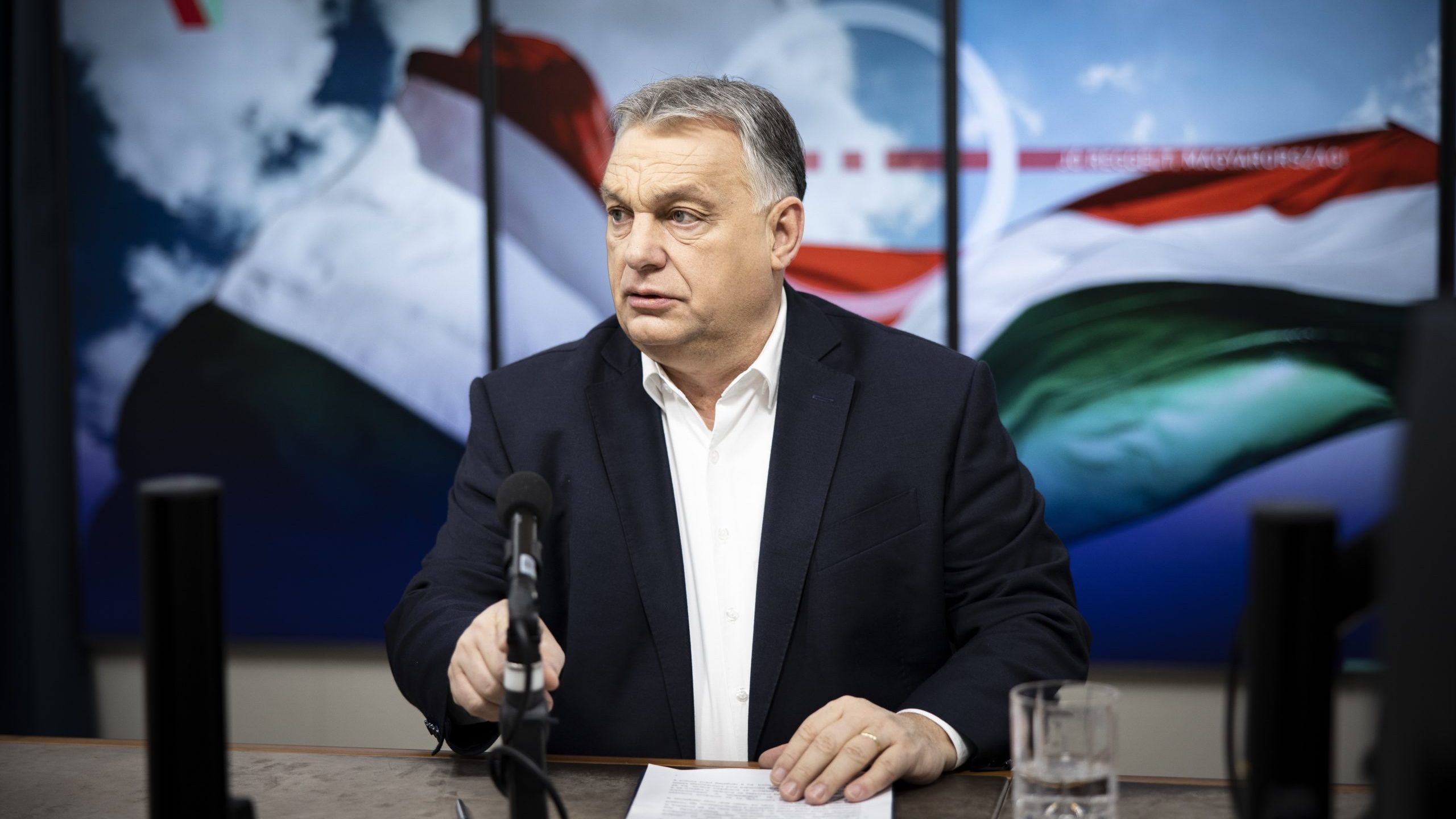
Mr. Orbán said that there will be three deputy prime ministers in the new government. His general deputy will be Zsolt Semjén, President of KDNP (Christian Democratic People’s Party), who is also responsible for Hungarian communities abroad, church affairs and national minorities in Hungary. Interior Minister Sándor Pintér will be Deputy Prime Minister in charge of national security, while Finance Minister Mihály Varga will work as Deputy Prime Minister responsible for the economy.
He justified creation of the post of Deputy Prime Minister for national security by underlining the importance of security and the fact that in the period ahead immigration will be Europe’s most important issue. Speaking about Mr. Varga, he said that in the economic sphere he embodies dependability, calm and financial stability.
The Government Office of the Prime Minister will be a new public administration body coming directly under the Prime Minister’s supervision. Mr. Orbán said that it will be responsible for coordinating the work of the state secretaries for public administration in the various ministries. The Government Control Office has been assigned to this body, part of which will also be a unified intelligence gathering centre. In a keenly competitive international environment, this will enable Hungary to benefit from improved information and intelligence gathering activities.
Mr. Orbán stressed that the Government’s goals have not changed: it will defend Hungarian and Christian culture; it will not hand the country over to foreigners; and it will not compromise on the goal of reaching full employment – which requires a well-functioning economy, lower taxes and higher wages. In addition to this, he said, it will continue to support families raising children and will preserve the value of pensions – raising them if circumstances permit.
He also said that it is the Government’s moral duty to see through the anti-immigration amendment to the Constitution which Parliament was unable to pass in 2016, due to lack of support from the opposition. Linked to this, he added, will be the “Stop Soros” legislative package, through which that he would like “George Soros’s shadow army to finally emerge into the light”, without concealment of the sources and amounts of their funding.
Migration is not a human rights issue, he noted, but a matter of national security, and therefore those who wish to engage in activities related to migration must seek permission from the national security services. At the same time, he said, non-Hungarian nationals supporting illegal immigration will be expelled from the country, and this is the essence of the “Stop Soros” legislative package.
The Prime Minister said he regrets the fact that Fidesz-KDNP did not obtain 134 seats in Parliament. “As I see it, the Curia [Supreme Court] has deprived us of one seat”, he stated, as the Constitutional Court ruled that the Curia had made a bad decision, which deprived the governing parties of more than four thousand votes. At the same time he observed that this must be accepted: the law does not allow for remedy of this flawed decision, because the result of the election must be finally ratified on Friday.
Regarding formation of the new government, he said that for years the Cabinet’s goals have remained unchanged. Despite this, each term has its own specific character, and people must be selected for the tasks in hand, not vice versa. Seven members of the new government are politicians by profession, he said, while the other seven have gained their reputations and experience outside the sphere of politics. Regarding criticisms levelled at his incoming ministers, he added that this is a “fight club”, and those who join it must be prepared for attacks from their rivals.
He also pointed out that in the period ahead he does not foresee any extraordinary developments that would divert some of his attention and energy away from direct management of the Government’s activities. As a result, he said, he will have the opportunity to identify specific important tasks and see them implemented.
His government, he continued, is Christian democratic in spirit: “we are not building a liberal democracy, but a Christian democratic one”, in which human dignity is paramount, the branches of power are duly separated, freedom is unconditional, families are supported and global ideologies are rejected. He stated that in such a democracy there is belief in the importance of the nation, a striving for full employment, respect for the equality of women, and resistance to changes which would result in increased anti-Semitism.
Migrants should not be given a single cent from the EU budget
Mr. Orbán also said that he will not support an EU budget in which funds are taken away from farmers, research and development and regional developments, and are given instead to countries which have let in migrants.
In his view, migrants should not be given “a single cent”, and every country should take care of them from its own budget. He added that – in alliance with the French – he likewise opposes reductions in funding for agriculture.
Regarding plans for the next budget of the European Union, he said that the most important advice is “to take it easy”, as the debate will be long. He highlighted that the joint seven-year financial framework must be adopted unanimously, and “there is no budget until the Hungarians give the go ahead.”
Hungary and Central Europe, he declared, need not fear any debate – including those on the rule of law and the budget. He added that as regards the rule of law, Hungary can be especially confident, because in 2013 it was fully audited, and “we have documentary proof that here the rule of law is in order”.
Regarding his talks with the European People’s Party (EPP) on Wednesday, the Prime Minister said that there will be elections in the European Parliament (EP) next year, and the main issue will be migration; so far only the Hungarian people have had the chance to state their opinion on this question. The EP elections will therefore be “a grand referendum” on immigration, he said, adding that he has offered the participation of Fidesz and his personal involvement in a large-scale EPP campaign. In his view, at this point in time the largest group in the European Parliament is not that of the EPP, but that of George Soros.

